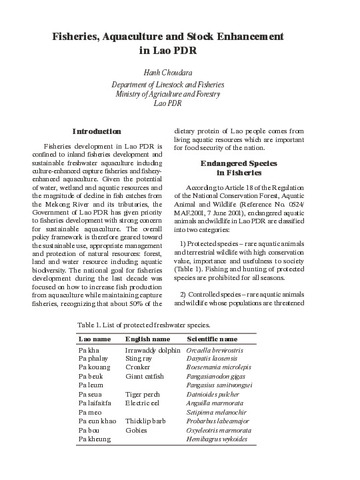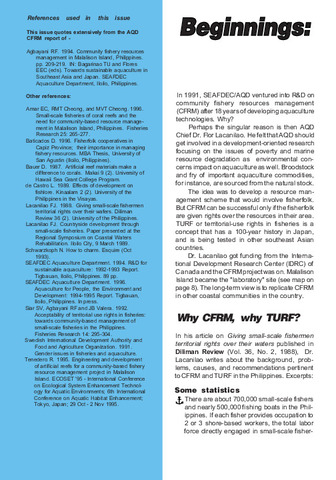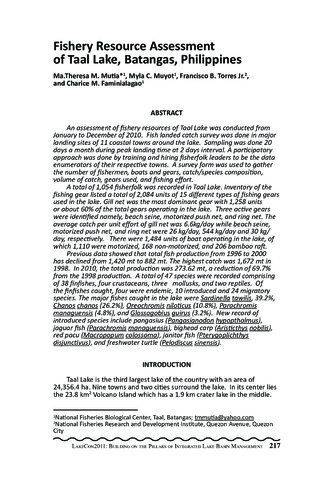The current state of aquaculture in Laguna de Bay
- Global styles
- MLA
- Vancouver
- Elsevier - Harvard
- APA
- Help

Download URL
pidswebs.pids.gov.phDate
2007Author
Page views
3,984ASFA keyword
AGROVOC keyword
Geographic names
Metadata
Show full item record
Share
Abstract
This paper presents some of the preliminary results and findings of an ongoing study, jointly conducted by the Southeast Asian Fisheries Development Center (SEAFDEC AQD) and Philippine Institute for Development Studies (PIDS), which assesses the current state of aquaculture in Laguna de Bay.
The study uses primary and secondary data. The primary data were gathered through interviews with key informants and a cross-section survey of fishpen and fishcage operators and their operations in Laguna de Bay conducted in 2007. The secondary data were gathered from the published statistical indices of institutional sources and other relevant literature.
The results of the study indicate that aquaculture in Laguna de Bay is a vibrant industry that includes not only fishpen and fishcage operators but also various participants in its input and product markets. Furthermore, they show that aquaculture contributes significantly to fish production in the lake as well as to national aquaculture and fisheries production.
The results of the study also indicate that while aquaculture in Laguna de Bay has been an important economic contributor locally and nationally, it has been facing numerous problems over time that constrain its development. Of these, environment-related problems, lack of access to cheap capital, obstruction of navigational lanes by fishpens, existence of illegal fishpens, poaching and overall limited support from the government were considered very serious by aquaculture operators. These problems, therefore, may be the ones needing the most attention.
Suggested Citation
Israel, D. C. (2007). The current state of aquaculture in Laguna de Bay (PIDS Discussion Paper Series No. 2007-20) (pp. 1-63). Makati City, Philippines: Philippine Institute for Development Studies.
Type
ArticleSeries
PIDS Discussion Paper Series; No. 2007-20Collections
- Books and Book Chapters [123]
Related items
Showing items related by title, author, creator and subject.
-
Fisheries, aquaculture and stock enhancement in Lao PDR
Choudara, Hanh (Aquaculture Department, Southeast Asian Fisheries Development Center, 2006)Fisheries development in Lao PDR is confined to inland fisheries development and sustainable freshwater aquaculture including culture-enhanced capture fisheries and fishery-enhanced aquaculture. Given the potential of ... -
Beginnings: SEAFDEC/AQD, CFRM, and Malalison Island
Southeast Asian Fisheries Development Center, Aquaculture Department (Aquaculture Department, Southeast Asian Fisheries Development Center, 1996)The paper documents the community fishery resources management activities of Southeast Asian Fisheries Development Center, Aquaculture Department (SEAFDEC/AQD) in Malalison Island, Antique, Philippines. -
Series: Summary of Proceedings No. 1/2013;
Fishery resource assessment of Taal Lake, Batangas, Philippines
Mutia, Ma. Theresa M.; Muyot, Myla C.; Torres Jr., Francisco B.; Faminialagao, Charice M. (PCAARRD-DOST, 2013)An assessment of fishery resources of Taal Lake was conducted from January to December of 2010. Fish landed catch survey was done in major landing sites of 11 coastal towns around the lake. Sampling was done 20 days a month ...





